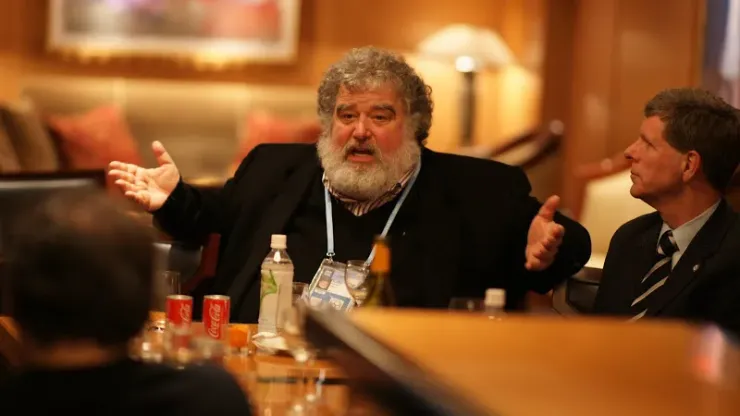With the CONCACAF Gold Cup about to kick off, the FIFA scandal should be on the front-burner for most American journalists. As the FBI indictments against several CONCACAF and Traffic Sports officials indicate, the governing body for the sport in North and Central America as well as the Caribbean, has held for much of the last two decades a continental championship whose very hosting and marketing has been compromised by alleged corruption.
Yet strangely as the tournament is about to kick off, the media attention in the United States that was so focused on the scandal when FIFA and the second-tier NASL were in the crosshairs has subsided while scrutiny should be placed on CONCACAF and US Soccer.
Much ink was spilled in the initial days after the scandal broke about the NASL, Traffic Sports and FIFA officials from other parts of the region. But once more of the discussion centered on Chuck Blazer, an American whose connections within FIFA and CONCACAF seem to have directly benefited the US Soccer Federation (USSF) and Major League Soccer (MLS), much of the US Soccer press began avoiding the story.
But now that the CONCACAF Gold Cup is beginning, questions need to be put front and center. What did MLS and US Soccer know about the corruption, bribes, money laundering and tax evasion that were pervasive under Chuck Blazer from 1990 to 2011 — and when did they know it? This is the same man who received MLS’ Commissioner’s Award in 2006 and was named “one of the most important people in the history of soccer in this country” by MLS Commissioner Don Garber.
SEE MORE — Years of Blazer corruption raises serious questions for American soccer
How were Chuck Blazer’s alleged activities that appear to have benefited MLS and US Soccer not faced more scrutiny — such as MLS convincing Blazer to pressure FIFA to overturn the awarding of the 2010 and 2014 FIFA World Cup TV rights from NBC Sports and to give them to ESPN instead. As a result, ESPN decided to start paying MLS for TV rights. Previously, MLS paid ESPN and FOX Soccer to put its games on those networks.
Plus, many of the misdeeds that are have alleged to have taken place in the FIFA scandal took place on American soil from Blazer’s offices in Trump Tower in New York City.
And as Charlie Stillitano recently mentioned on his Sirius XM FC satellite radio show, Blazer and USSF President Sunil Gulati were best friends. Gulati and Blazer are pictured together on Blazer’s blog where Blazer refers to Gulati as his friend. Incredibly, in a 2013 interview with Sports Illustrated, Gulati claims he knew nothing about CONCACAF’s “staggering examples of improper behavior.”
Unlike other confederations, CONCACAF always holds either the bulk of or their entire continental championship in the United States. This has always been accepted as a fait accompli by many in the US Soccer press, but why is this? We now have been presented evidence that huge bribes may have been involved in the marketing of the tournament and the reasoning why the competition is held every two years is probably tied to this possible graft where there’s an opportunity to make more money than in other countries. The decision to award the Copa America tournament in 2016 to the United States, something that seemed bizarre from the get-go, was allegedly due to over a hundred million dollars in alleged bribery. On this matter, it’s hard to believe that high-ranking officials either at the USSF or around the game in the United States had zero knowledge of this.
Many of the CONCACAF Gold Cup tournaments have, according to the legal documents released in this matter, been caught up in alleged corruption either due to awarding of the event or the marketing rights related to the tournament. While it’s fair to note that the four Gold Cups that were marketed by MLS’ Soccer United Marketing (SUM) were not named in any of documents, the others marketed by Traffic Sports did take place on American soil, and without a doubt soccer in the United States benefited from the hosting of those tournaments.
Chuck Blazer’s influence in FIFA and relationship with Sepp Blatter no doubt benefited the United States. The net result at minimum was the nation gaining political influence within FIFA that was beneficial to growing the business of the sport in the United States. But perhaps it resulted in more than that, and those questions need to be asked by US-based journalists.
200+ Channels With Sports & News
- Starting price: $33/mo. for fubo Latino Package
- Watch Premier League, Women’s World Cup, Euro 2024 & Gold Cup
The New Home of MLS
- Price: $14.99/mo. for MLS Season Pass
- Watch every MLS game including playoffs & Leagues Cup
Many Sports & ESPN Originals
- Price: $10.99/mo. (or get ESPN+, Hulu & Disney+ for $14.99/mo.)
- Features Bundesliga, LaLiga, Championship, & FA Cup
2,000+ soccer games per year
- Price: $5.99/mo
- Features Champions League, Serie A, Europa League & Brasileirāo
175 Premier League Games & PL TV
- Starting price: $5.99/mo. for Peacock Premium
- Watch 175 exclusive EPL games per season







